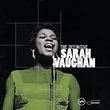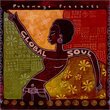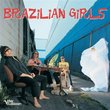| All Artists: Johnny Blas Title: Mambo 2000 Members Wishing: 0 Total Copies: 0 Label: Cubop Records Original Release Date: 8/11/1998 Release Date: 8/11/1998 Genres: International Music, Jazz, Pop, Latin Music Styles: Caribbean & Cuba, Cuba, Mambo, Latin Jazz, Soul-Jazz & Boogaloo, Latin Pop, Tropical, Salsa Number of Discs: 1 SwapaCD Credits: 1 UPC: 780661501220 |
Search - Johnny Blas :: Mambo 2000
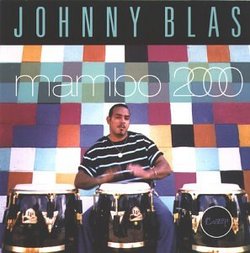 | Johnny Blas Mambo 2000 Genres: International Music, Jazz, Pop, Latin Music
On Mambo 2000, L.A.-based composer and conguero Johnny Blas lays down breezy West Coast melodies on top of dance-friendly Latin rhythms with an unusual octet featuring up to four trombonists, including jazz critic Dan Wei... more » |
Larger Image |
CD DetailsSynopsis
Amazon.com On Mambo 2000, L.A.-based composer and conguero Johnny Blas lays down breezy West Coast melodies on top of dance-friendly Latin rhythms with an unusual octet featuring up to four trombonists, including jazz critic Dan Weinstein. While the largely original set hinges on the sleek interplay of Mark Gutierrez's traditional Afro-Cuban piano motifs and syncopated dialogues between the bandleader and co-percussionist Jose DeLeon, the bone quartet often takes the lead, playing simple tunes with little variation in the harmonic arrangements. Though descendent from the pioneering mambo sound of Tito Puente and the fiery jazz of Chucho Valdés and Irakere, Blas's embryonic vision lacks the punch and compositional clarity of these mature artists. The disc's California chill factor, however, may appeal to some fans, but its transparency may not convince the Latin jazz cognoscenti. --Sam Prestianni Similarly Requested CDs
|
CD ReviewsThe mambo is alive and well Bruce A. Ishikawa | Marlborough, MA USA | 05/07/1999 (5 out of 5 stars) "The mambo is alive and well and moving into the new millenium. From its murky beginnings in 1940s Cuba to the explosion in Mexico City and New York fueled by such greats as Perez Prado, Machito and Tito Puente, the mambo has become one of the staples of Latin music, a style which has regularly crossed over into the popular culture at large. The mambo has risen and declined and revived. Now, with his new CD, "Mambo 2000," Los Angeles conguero Johnny Blas has redefined the mambo. The same rhythms are there in the percussion section led by Blas on congas and bongos, Jose DeLeon on timbales and bongos, bassman Paul Perez and pianista Mark Gutierrez (who also takes up the guitar here and there). But then a rich, deep horn section comes in with four trombones blown by different combinations of Art Velasco, Francisco Torres, Steve Baxter, Isaac Smith and Dan Weinstein, who also plays baritone horn, all combining to make a sound never heard in the Palladium days. "Mambo 2000" is completely instrumental, mostly mambo and mostly original material. There is a nice slow number, "We're Partners in Love" that is crying for lyrics (didn't someone say that the trombone is the instrument most like the human voice?), but the rest is pure mambo, including a firey version of Tito Puente's "Picadillo." It's easy to forget that this is mambo as the music takes you places the old mamberos never dared tread. The horns trade solos and switch to harmonies, there is a structure to the whole effort, but there is plenty of room to swing, the album has a looseness about it that speaks to spontaneity. The mix is good, the horns turned down a notch on occasion when it's time for Blas to solo so you can hear the percussion clearly. My favorite moment comes in a tune called "Grab a Hold of Yourself" which starts out with an Eddie Palmieri-esque piano pattern. The trombones come in and play the theme, then Isaac Smith starts a solo, his trombone very deep and fuzzy sounding, almost like a tuba, then sharpening up. more horns join in, trading licks back and forth, the sound is thick and getting thicker. Suddenly, the horns are gone and we are treated to a crisp piano solo that starts out mildly then gets crazier and crazier. Halfway through the piano solo, several horns start to blow drone notes, deep and rich, that sound just like the 16 foot long sacred horns Tibetan monks blow to help their brothers enter the state of blissful trance. As Jose DeLeon plays a rapidfire bongo solo, the piano repeats the same phrase over and over, perpetuating the hypnotic vision until we are brought out of it by a roll of the timbales and a recognition of the original theme. It seems so long ago that we last heard it! "Mambo 2000" is Blas' fourth effort. If he continues to keep up the hard work and imagination, he'll be around for a long time. DLG indeed!"
|

 Track Listings (10) - Disc #1
Track Listings (10) - Disc #1
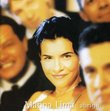
![Poses [Bonus Track]](https://nationalbookswap.com/cd//m/81/4481/574481.jpg)
